Raiseerror Rspec
The results are compared to a set of defined expectations.

Raiseerror rspec. Expect { raise StandardError }.to raise_error You can use raise_exception instead if you prefer that wording:. Publish, browse, search, and organize your Cucumber features on the web. Once you've set up the environment, you'll need to cd into the working directory of whichever repo you want to work in.
# bad RSpec.describe Foo do it 'does this' do end it 'does that' do end end # good RSpec.describe Foo do it 'does this' do end it 'does that' do end end # fair - it's ok to have non-separated one-liners RSpec.describe Foo do it { one } it { two } end. That falls over for raise_error, unfortunately, because in an expression like expect(raise).to raise_error ruby evaluates the raise first and it aborts before RSpec even has a chance to do anything with it. $ rspec --profile spec/ 55/55:.
Require 'spec_helper' describe 'foo' do context 'with default values' do it { should compile.and_raise_error(/baz is yes/) end end Which will test for the failure but how do I write a second test for the foo module that tests for different parameters being set on foo::bar when automatic class parameters are used?. Then you need to create a describe block to group all your tests together & to tell RSpec which class you are testing. Using RSpec 3 I have been a long time user of RSpec and many of the Ruby projects I work with use RSpec as the primary testing framework.
In RSpec, tests are not just scripts that verify your application code. From there you can run the specs and cucumber features, and make patches. Basic form passes if any error is thrown:.
Expect { 3 / 0 }.to raise_exception. The most basic form passes if any error is thrown:. You need to require the rspec gem.
Also, you'll generally get warnings from RSpec 3 when you attempt to use a block matcher against a non-block subject. Describe Factorial do it "does something" do #. Most matchers can also be accessed using the ().should and ().should_not syntax;.
Expect { expect(nil).to receive(:foo) }.to raise_error(RSpec::Mocks::MockExpectationError) After getting to the point where we could expect all our expectations to behave the way we wanted, another challenge was figuring out how to test the configuration of the framework without changing the configuration for the whole suite from within your test. They’re also specifications (or specs, for short):. December 31, 17 Ruby Leave a comment.
I'm writing this as an intro to some basic patterns and syntax used in RSpec Rails testing, as well as some basic BDD strategy for breaking down code into testable units. The way to do this in RSpec isn’t immediately obvious. Now I have a rspec test.
ChefSpec is built on the RSpec DSL. It "fails without side-effects" do values = 1,2,3 expect { raise "Kaboom" values.pop }.to raise_error("Kaboom") .and_not change { values } end. This means that class foo::bar will only be matched by foo::bar , not by ::foo::bar or bar alone.
With a named error, matches only if that specific error is raised. RSpec is a behavior-driven development (BDD) framework that uses a natural language domain-specific language (DSL) to quickly describe scenarios in which systems are being tested. It provides an expressive specification DSL.
RSpec allows a scenario to be set up, and then executed. Expect { 3 / 0 }.to raise_exception raise_error and raise_exception are functionally interchangeable, so use. Along the way we will encounter some more matchers and how to compose them.
Raise_exception, a_block_raising, raising With no args, matches if any error is raised. As an alternative to the official documentation, this cheat sheet contains short example code to demonstrate all the built-in expectation matchers. If you are not familiar with the basics of RSpec, I highly recommend you take some time before continuing to read through the RSpec documentation.
See using should syntax for why we recommend using expect. Example describe "An example of the equality Matchers" do it "should show how the equality Matchers work" do a = "test string" b = a # The following Expectations will all pass expect(a).to eq "test string" expect(a).to eql "test string" expect(a).to be b expect(a).to equal b end end. Rspec examples are written using describe (ExampleGroup, you can nest multuple describe blocks), let statements and it blocks (Example).
It’s possible to chain assertions together using and, so this might be what you write. Exposes the current running example via the named helper method. Welcome to Testing Ruby with RSpec:.
That error should only be raised if the :expect syntax is enabled in rspec-mocks but disabled in rspec-expectations (or if you're using rspec-mocks standalone w/o rspec-expectations). RSpec is a behavior-driven development (BDD) testing tool for Ruby, and is widely used for testing both plain ol' Ruby and full-on Rails applications. If you want to use rspec-expectations with rspec, just install the rspec gem and RubyGems will also install rspec-expectations for you (along with rspec-core and rspec-mocks.
Test whether the thing can be click. Rspec-puppet does not do the class name parsing and lookup that the Puppet parser would do for you. RSpec::Expectations lets you express expected outcomes on an object in an example.
Rails4からRSpecでテストを評価したいとき,shouldではなくexpectを使うようにするのが望ましいとのこと. Ruby - RSpecのshouldはもう古い!新しい記法expectを使おう! - Qiita このリンク先では標準的な使い方の場合,expect()を使っている.メソッドとして結果を引数を渡… 翻訳 · If you’re reading this code. We are continuing an introduction to RSpec, a testing tool for Ruby.After covering the very basics in the first part of this series, we will now explore other important and frequently used features of RSpec:. Getting “Could not install gems:no SDK specified” when trying to run any command such as starting the rails server.
I have blogged a few times recently about using MiniTest. Use of subject, let helper method, before hooks and exception handling. The matcher only accepts fully qualified class names without any leading colons.
If you need to assert count you can use before {} (it is before(:example) and is run after let statemets) to instantinize all let objects since there are lazy (or you can use let!Also you can use before(:context) { Location.delete_all} (this is run before let. Each matcher can be used with expect().to or expect().not_to to define positive and negative expectations respectively on an object. Expect { raise StandardError }.to raise_error.
Rspec-rails brings the RSpec testing framework to Ruby on Rails as a drop-in alternative to its default testing framework, Minitest. - (Object) raise_error(error = nil, message = nil, &block) Also known as:. See the should_not gem for a way to enforce this in RSpec and the should_clean gem for a way to clean up existing RSpec examples that begin with 'should.' Discuss this guideline → Automatic tests with guard.
Use the raise_error matcher to specify that a block of code raises an error. }.to_not raise_error(Celluloid::DeadActorError) end Unfortunately, this prints a deprecation warning into the spec output, and presumably this will actually fail in a future version of RSpec. RedRock server allows the port to be overridden 0. seconds ./spec/redrock_spec.rb:107 RedRock supports specification of a response body as an IO object 0. seconds ./spec/redrock_spec.rb:336 RedRock returning a custom response returns the specified.
Detailed explanations of how the application is supposed to behave, expressed in plain English. Rspec-expectations ships with a number of built-in matchers. End This is the initial code for writing your first RSpec test.
Framework should raise an exception when expectations fail teardown_mocks_for_rspec - called after verify_mocks_for_rspec (even if there are errors). However, some extension gems (such as Capybara) depend on the RSpec 2.x's example method, so this config option can be used to maintain compatibility. It takes a lot of time and it can break your flow.
To raise_error (an_error_other_than (SyntaxError)) end end. Describe "Using `an_error_other_than` as an argument to `raise_error`" do example "passing" do expect {raise ArgumentError}. RSpec Formatters offer the ability to change the way test results display, it is even possible to create your own custom Formatter, but that is a more advanced topic.
Running all the test suite every time you change your app can be cumbersome. Instead, consider using expect { }.not_to raise_error` or `expect { }.to raise_error(DifferentSpecificErrorClass). RSpec is the most popular Ruby Gem of all time, with over 300 million downloads to date.
Gem install rspec-expectations Contributing. This is not intended to be an RSpec tutorial, just an explanation of how to use the extended functionality that rspec-puppet provides. This course offers a comprehensive overview of the RSpec testing library for the Ruby programming library.
It sounds like the OP's needs have been met, but for future explorers, here's some tools to tell if something is clickable. 備忘録 rspec でバリデーションエラーが発生することをテストしたい場合、 expect(@facility.phone_numbers.create!(phone_number:. Rspec ./formatter_spec.rb:3 # A spec file to demonstrate how RSpec Formatters work when running some tests the test usually calls the expect() method at least once.
In RSpec, tests are not just scripts that verify your application code. RSpec is a mature, feature-packed testing framework, but the documentation can be difficult to navigate. Use the raise_error matcher to specify that a block of code raises an error.
They’re also specifications (or specs, for short):. RSpec 2.x exposed this via example, but in RSpec 3.0, the example is instead exposed via an arg yielded to it, before, let, etc. Detailed explanations of how the application is supposed to behave, expressed in plain English.
You can use raise_exception instead if you prefer that wording:. How to use RSpec's should_raise with any kind of exception ?. Relish helps your team get the most from Behaviour Driven Development.
Require 'rspec/autorun' describe Factorial do #. RSpec allows a developer to specify that an error is raised within a block with the raise_error method. As you may know, RSpec 3 is currently in the works.
Rspec-rails brings the RSpec testing framework to Ruby on Rails as a drop-in alternative to its default testing framework, Minitest. It’s a nice expressive way of saying that your code should. 00:00:00 Top 10 slowest examples:.
The RSpec warning clearly explains the issue with this test. Sounds like there's a bug somewhere in that logic. To raise_error (an_error_other_than (SyntaxError)) end example "failing" do expect {raise SyntaxError}.

Rspec Testing For Beginners Part 2
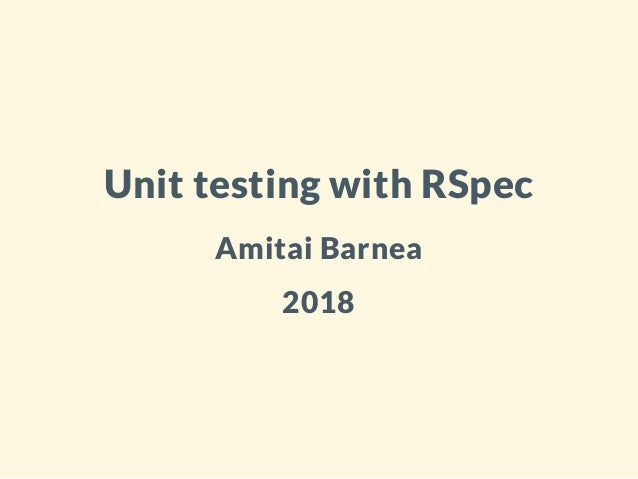
Rspec

Rspec On Rails Tutorial
Raiseerror Rspec のギャラリー
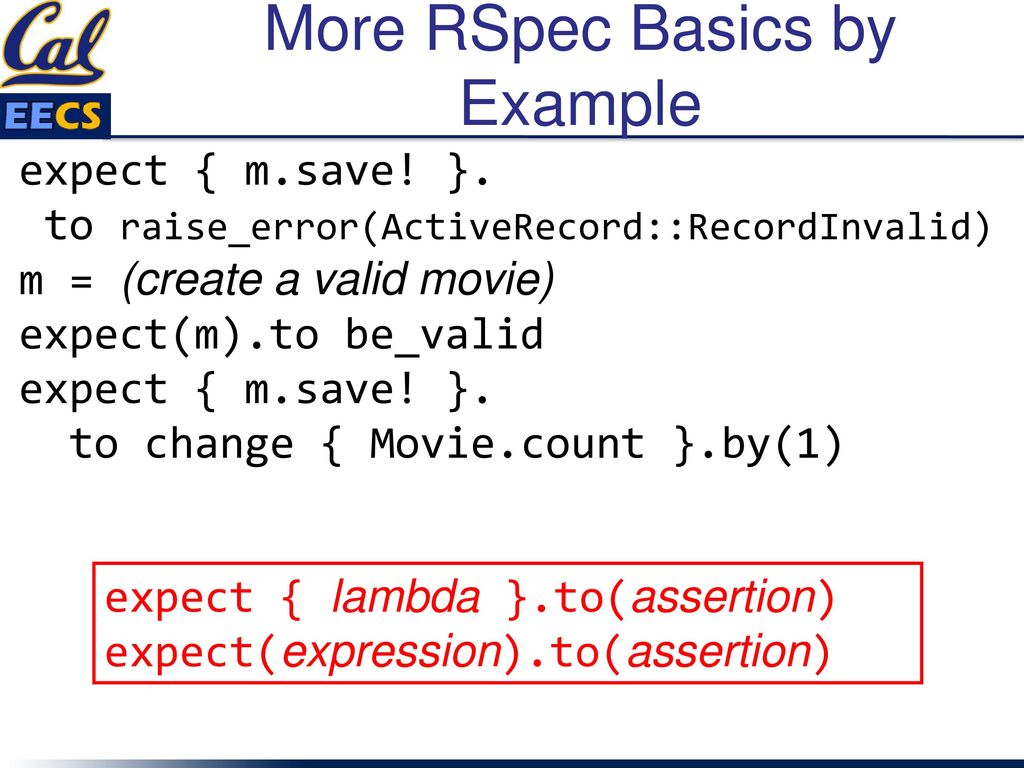
Intro To Rspec Unit Tests Engineering Software As A Service 8 1 Ppt Download

Four Phase Test With Rspec S Raise Error Raise Exception Ruby

Kicking Aruba Into A Bin
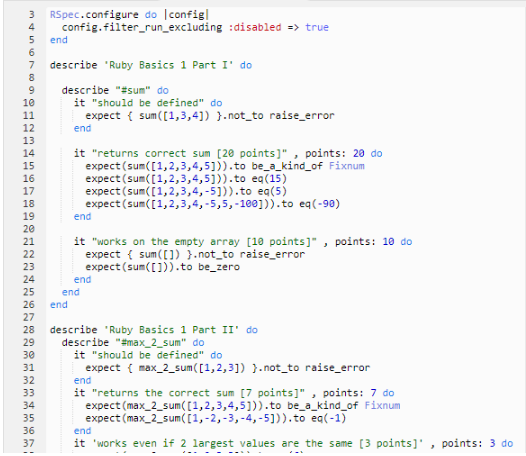
Need Help Please With Ruby Work 1 Complete Lab1 Chegg Com
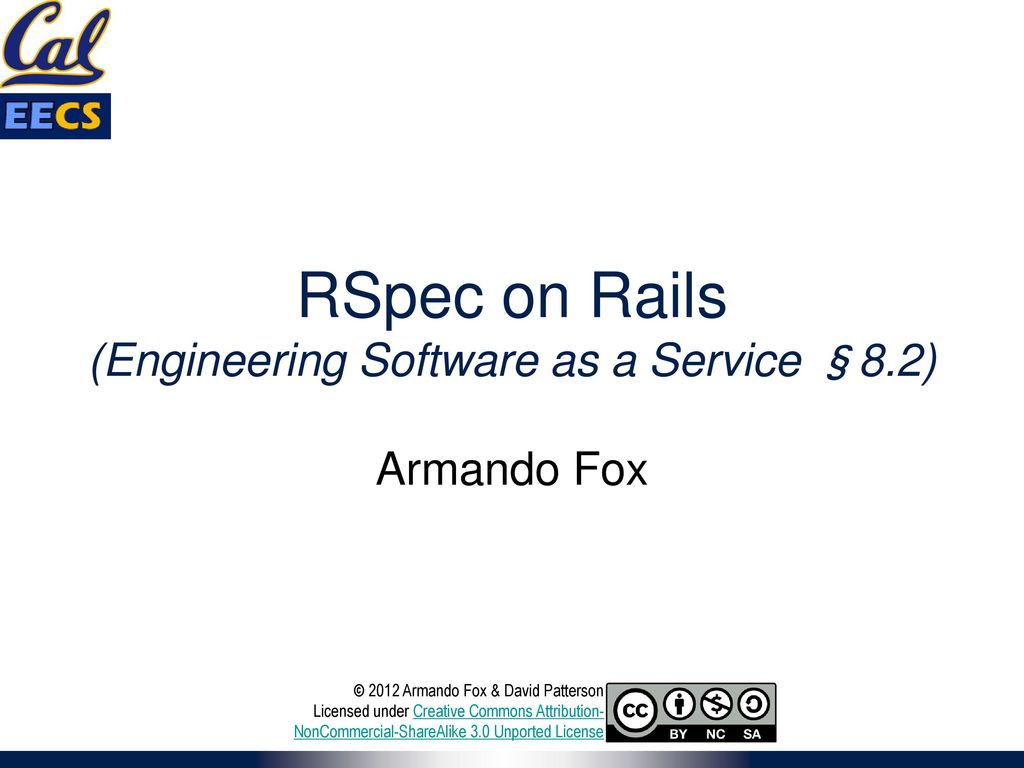
Intro To Rspec Unit Tests Engineering Software As A Service 8 1 Ppt Download

Mocking Con Rspec By Leandro Segovia Codigo Banana El Blog De Platanus

Rspec And Capybara Intro Tutorial At Railsconf 13 Pdf Document

Rspec Allow Raise Error Fasrskill

Testing Deprecations Warnings With Rspec Arkency Blog

How To Build An Ecommerce Api With Ruby On Rails Part 1 Programmableweb

Rspec Allow Raise Error Fasrskill

Rspec Mocks の And Raise が Argumenterror になってしまう場合は例外クラスに引数を渡す Qiita

Rails Rspecでテストコードを書くときのraise Errorの扱い方 エンジニア イエノカドのブログ

Sovgycrtwt6lwm

Rspec Cheat Sheet

A Beginner S Guide To Rspec
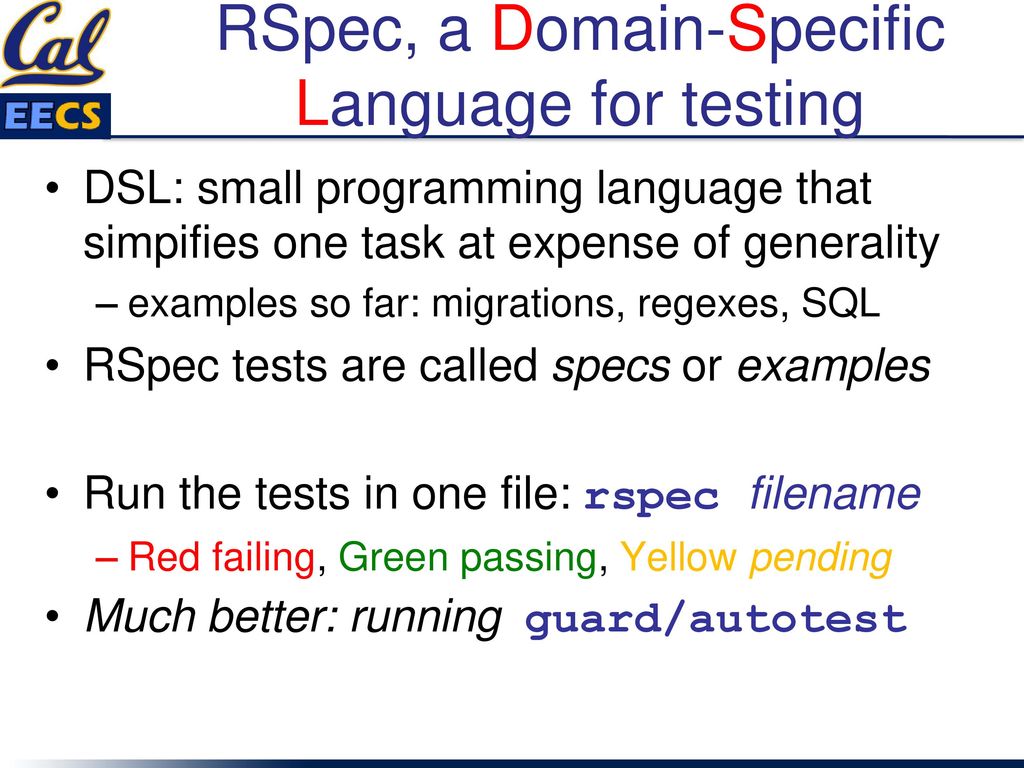
Intro To Rspec Unit Tests Engineering Software As A Service 8 1 Ppt Download
Rspec Expectations By Rspec

Rspec Level 2 Configuration Matchers Zhentiw 博客园
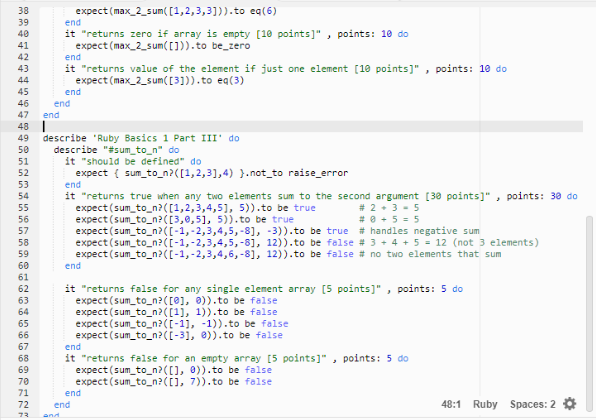
Need Help Please With Ruby Work 1 Complete Lab1 Chegg Com
New Rescue From Handling In Rspec Rails 1 1 12 Rspec Ruby Forum
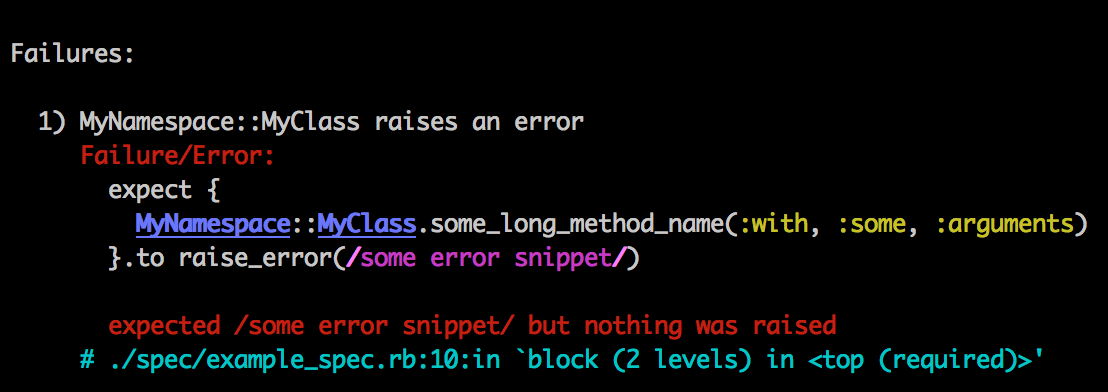
Rspec 3 4 Has Been Released

Build A Restful Json Api With Rails 5 Part Two Scotch Io

How To Rspec Your Sidekiq Scheduler Dev
Github Yujinakayama Transpec The Rspec Syntax Converter
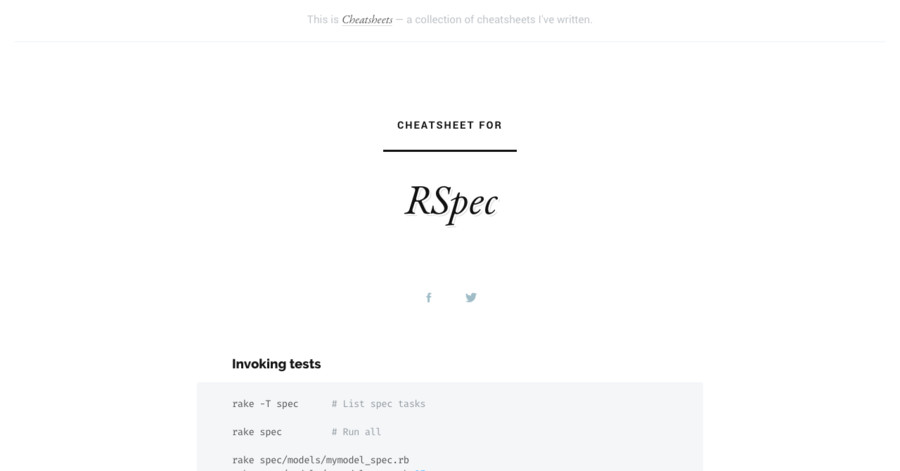
Rspec Cheatsheet

Rspec S New Expectation Syntax

Rspec Cheatsheet Attributed C Programming Language Software

My Rspec Note Dev
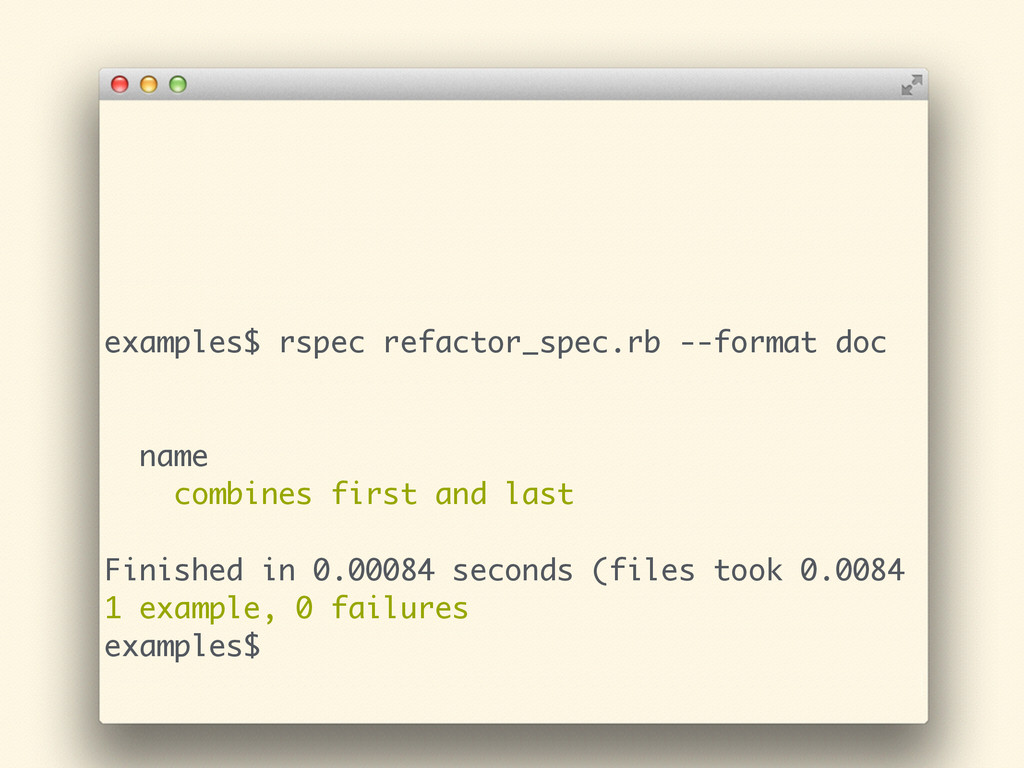
Rspec 3 And Why I Expect You To Care Speaker Deck
Ruby And Rails March 08
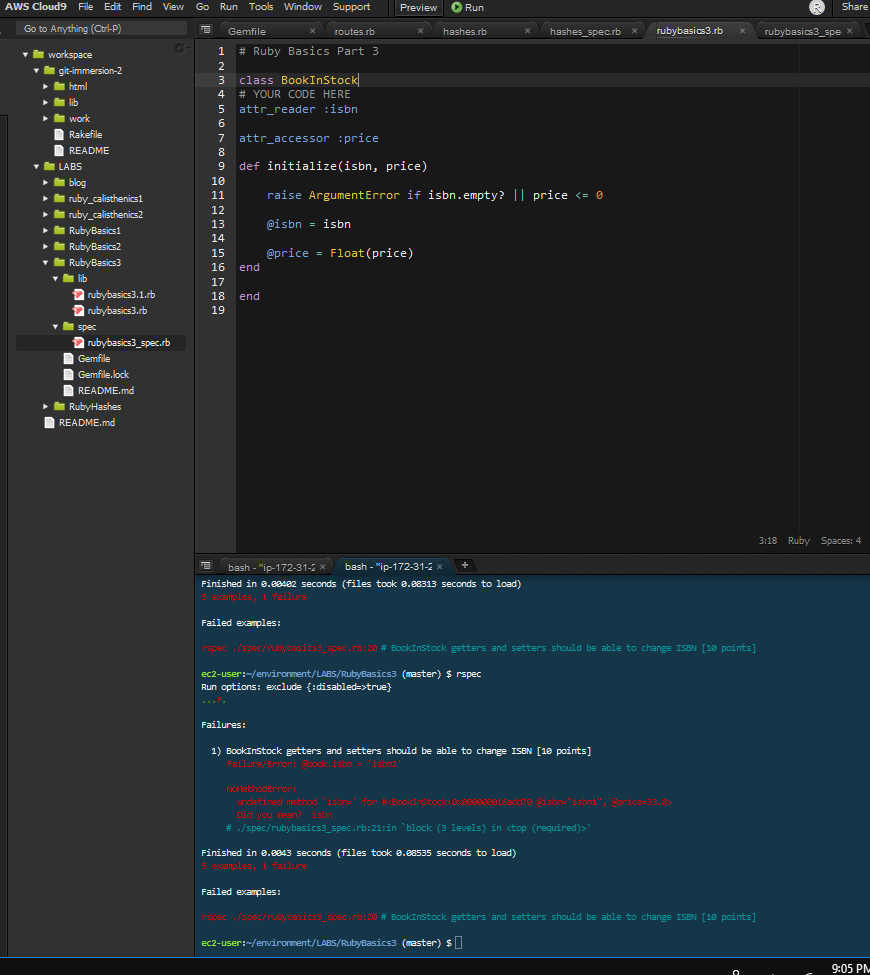
This Is What I M Getting Code Given Is Below Rub Chegg Com

Lecture 1 Test Driven Development In Ruby Pdf Free Download

Why Rspec Tests Fail And How To Fix Them By Thomas Barrasso Better Programming Medium
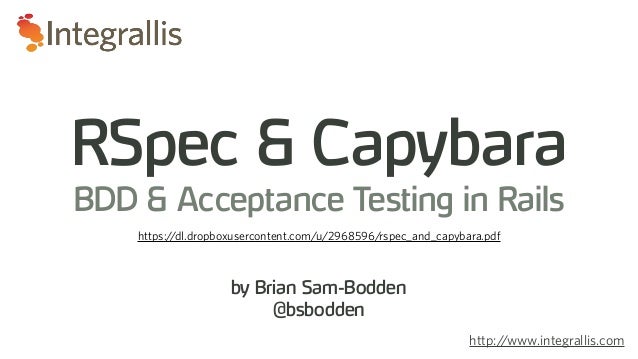
Rspec And Capybara Intro Tutorial At Railsconf 13
Github Yukihirop Match Hash This Is A Custom Matcher To Match Hash In Rspec

Rspec And Exceptions Today I Learnt That These Two Tests By Rachel Evans Medium

Cheat Rspec User Computing Security Engineering

Ch08 Tdd Rspec Pptx Test Driven Development Unit Testing

Rails Rspec Error Undefined Local Variable Or Method For Rspec Core Examplegroup Nested 3 0 Stack Overflow

Rspec 3 The New The Old The Good
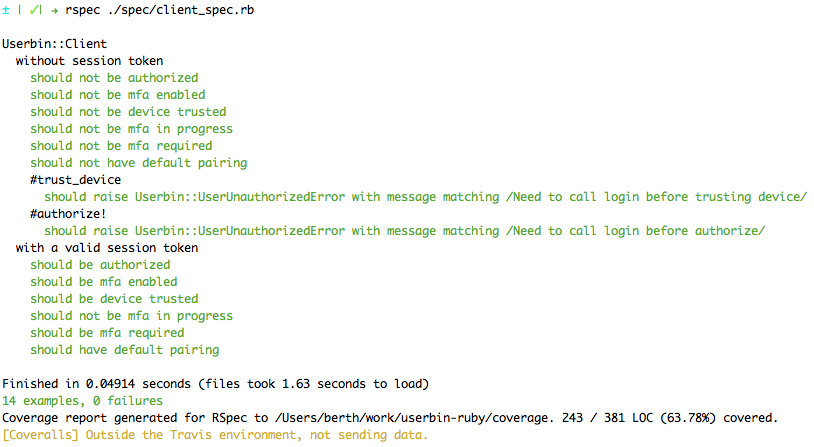
Real World Example Of Testing And Refactoring Part 2 Dr Matthias Berth

How To Work With Github Actions In Your Rails App Solr Engine By Juan David Gaviria Kommit

Stricter Tests For Expectations Set On Nil In Rspec Square Corner Blog
Consider Deprecating Expect Not To Raise Error Specificerrorclass Issue 231 Rspec Rspec Expectations Github

Rspec Matchers Cheat Sheet

Rspec 3 The New The Old The Good Pdf Document
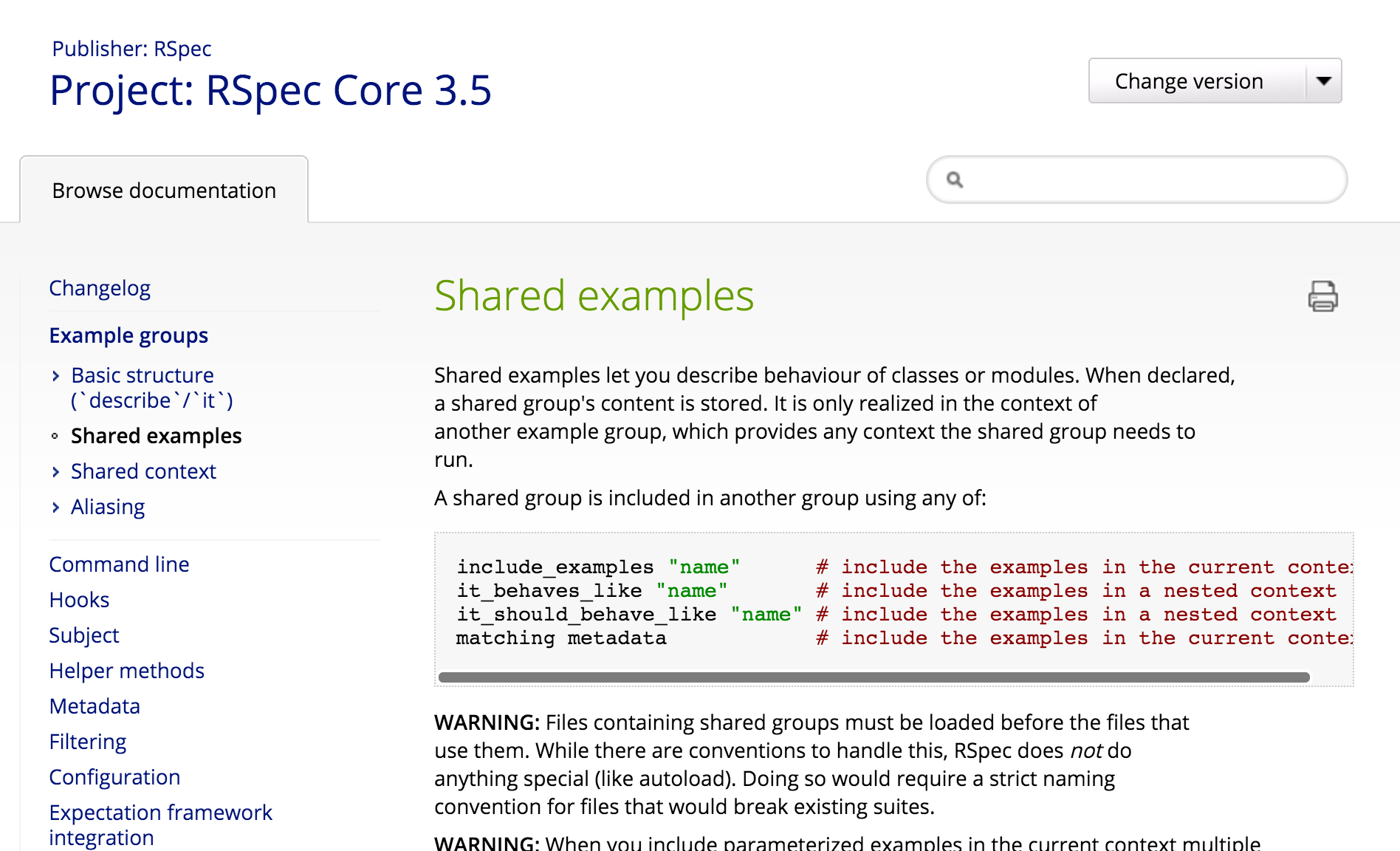
Drying Up Rspec With Shared Examples
Http Barbra Coco Dyndns Org Student Rspec The Rspec Book P2 1 Pdf
Doesn T Work With Rspec Raise Error Issue 7 Thoughtbot Factory Bot Github
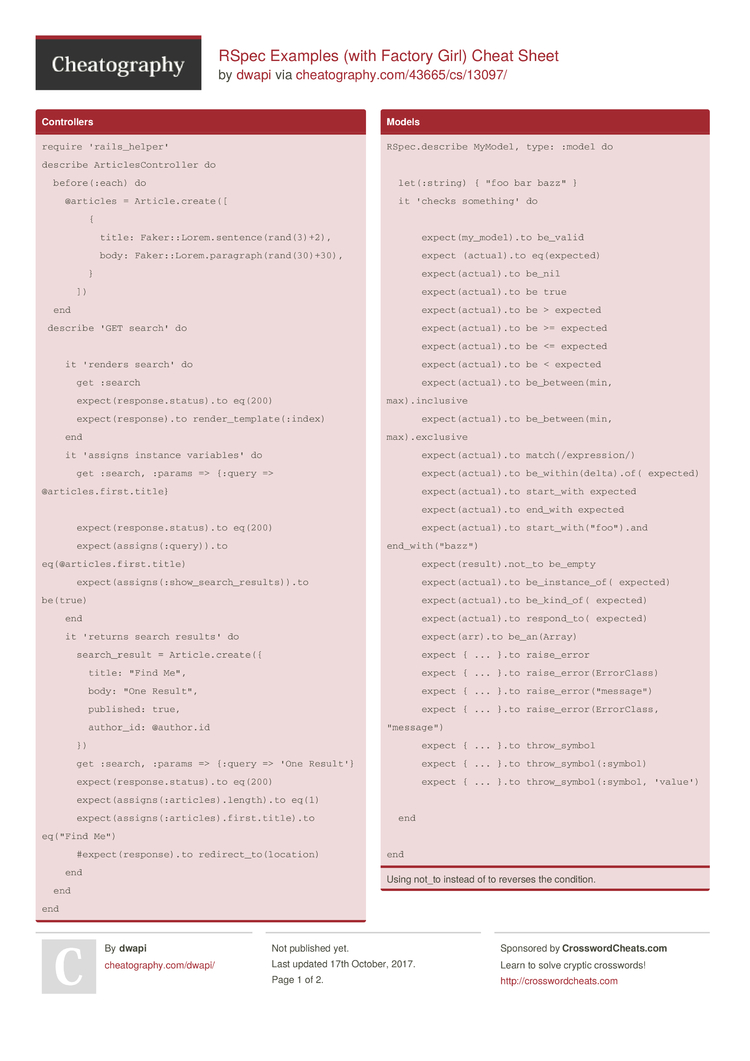
Rspec Examples With Factory Girl Cheat Sheet By Dwapi Download Free From Cheatography Cheatography Com Cheat Sheets For Every Occasion

ged With Rspec Mike Pack Development

Testing Graphql Mutations In Ruby On Rails With Rspec

Require Hashes Rb Rspec Configure Do Config Co Chegg Com

Build A Restful Json Api With Rails 5 Part Two Scotch Io

Using The Non Global Describe Causes A Spec To Fail When Using Vcr Issue 27 Rspec Rspec Github

Why Rspec Tests Fail And How To Fix Them By Thomas Barrasso Better Programming Medium

Rspec 3 And Why I Expect You To Care Speaker Deck

Testing Ruby With Rspec A Beginner S Guide

Rspec Cheat Sheet

Testing Associations With Factories And Rspec Perpetually Confused

Rspec And Test Driven Development By Wesley Davis Medium

The Rspec Book Behaviour Driven Development With Rspec Cucumber And Friends The Facets Of Ruby Series Pdf Free Download

Testing Ruby With Rspec The Complete Guide Video
Consider Deprecating Expect Not To Raise Error Specificerrorclass Issue 231 Rspec Rspec Expectations Github

Rspec 3 And Why I Expect You To Care Speaker Deck

The Definitive Rspec Tutorial With Examples Rubyguides

Rspec Best Practice Avoid Using Before And Let

Building Tests In Ruby Rspec Helper Methods And Hooks Dev
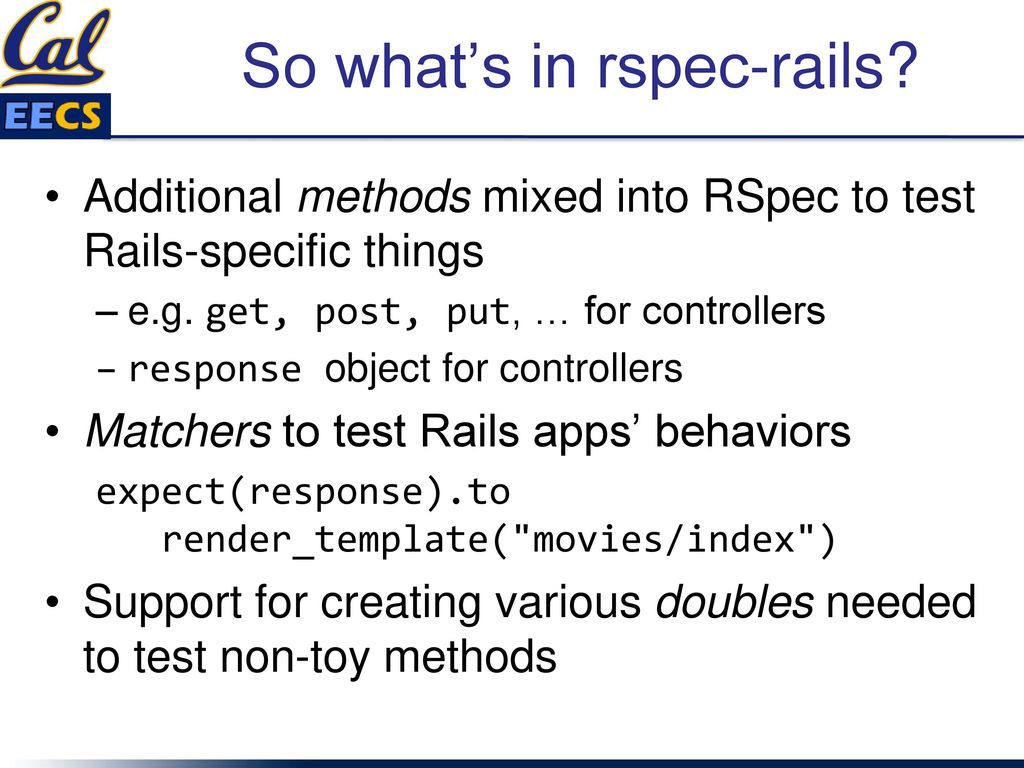
Intro To Rspec Unit Tests Engineering Software As A Service 8 1 Ppt Download

Rake Does Not Swallow Rspec Message Output Stack Overflow

Stricter Tests For Expectations Set On Nil In Rspec Square Corner Blog
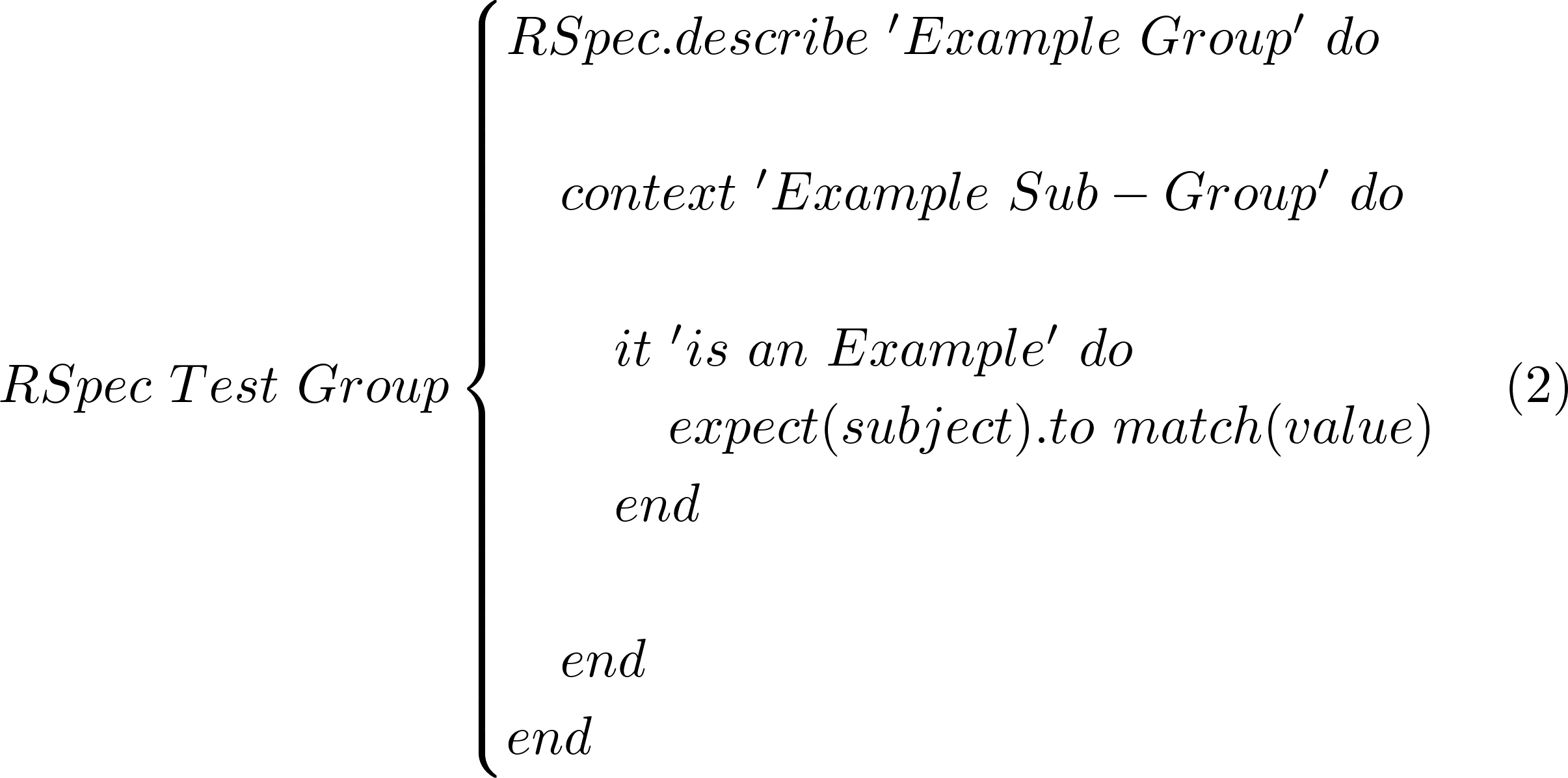
R S P E C Find Out What You Mean To Me By Ezra Schwepker Medium
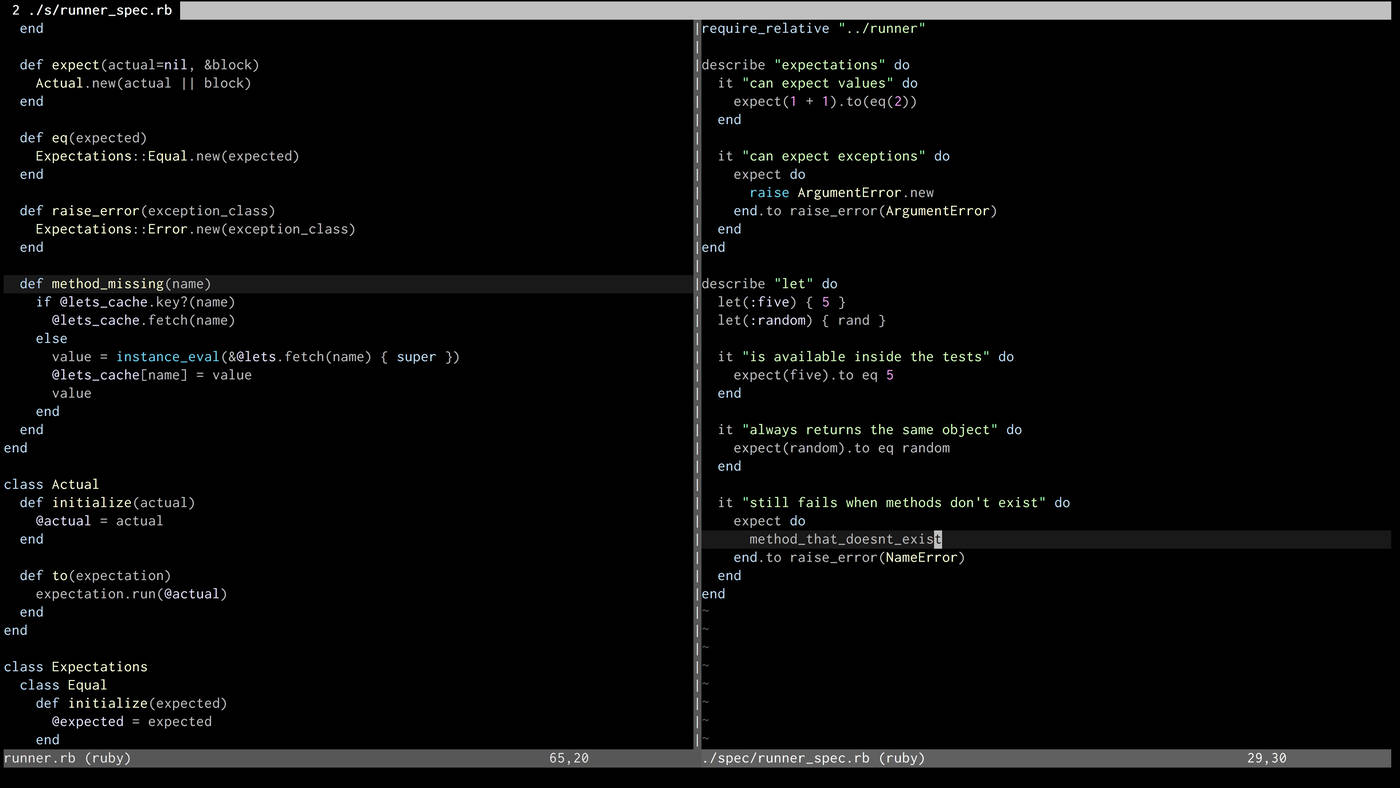
Implementing Let

Rspec For Practical Rubyist Speaker Deck

Rspec Development Compass By Nimble

Rspec Beta By Foo Bar Issuu
Suggestion Raise Error Matcher Should Have No Default Exception Type Or Default To Standarderror Issue 655 Rspec Rspec Expectations Github
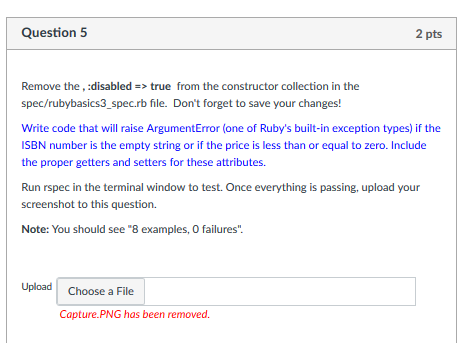
Ruby Current Program Class Bookinstock Attr Reader Chegg Com

Testing Ruby With Rspec A Beginner S Guide

Rspec And Test Driven Development By Wesley Davis Medium

Ruby On Rails Testing With Rspec

Rspec 3 Expectations Cheat Sheet By Mpicker0 Download Free From Cheatography Cheatography Com Cheat Sheets For Every Occasion
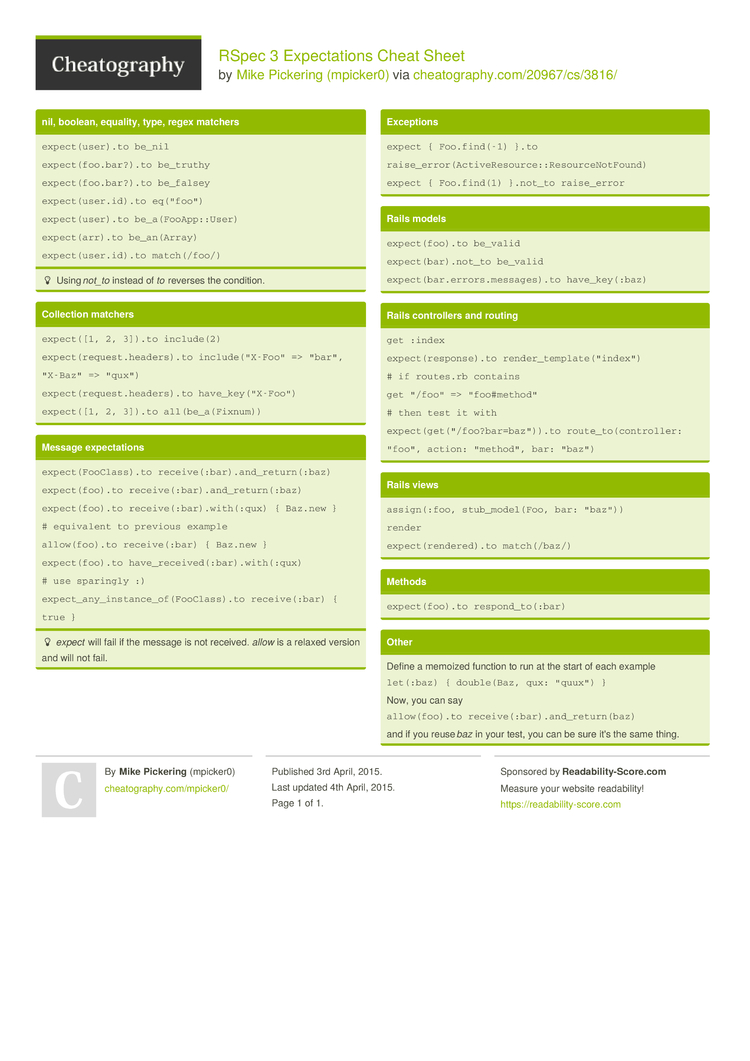
Rspec 3 Expectations Cheat Sheet By Mpicker0 Download Free From Cheatography Cheatography Com Cheat Sheets For Every Occasion

Working With Rspec Matchers Simple Instant Rspec Test Driven Development How To

How To Build An Ecommerce Api With Ruby On Rails Part 1 Programmableweb

The Definitive Rspec Tutorial With Examples Agira Technologies
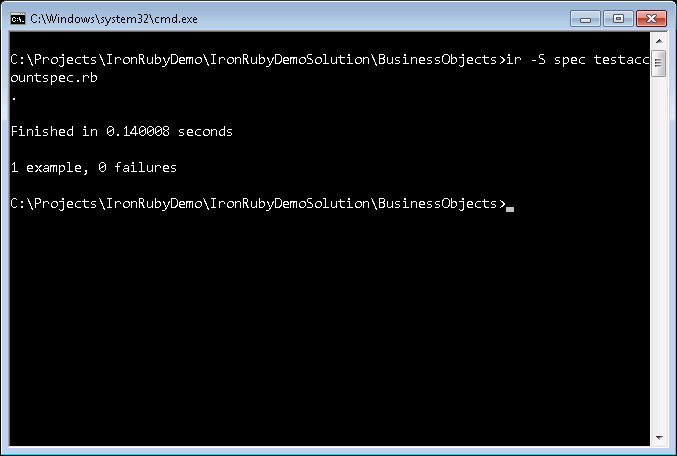
Unit Testing Clr Assemblies Using Ironruby

Rspec Expectations Cheat Sheet Boolean Data Type Software Development
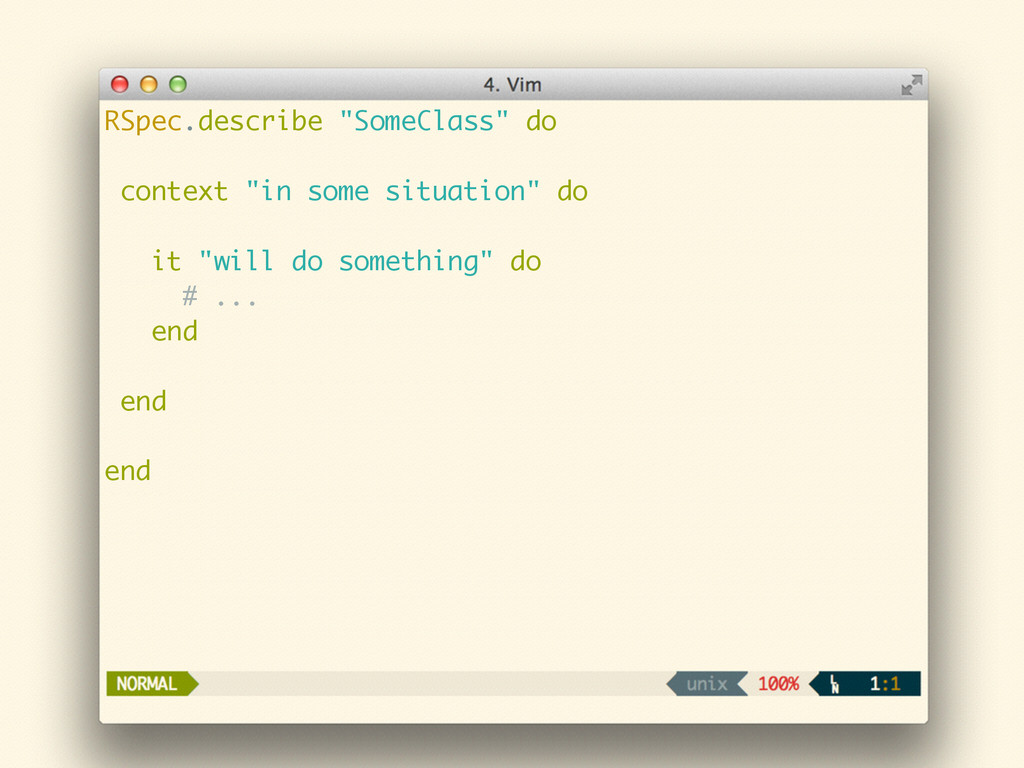
Rspec 3 And Why I Expect You To Care Speaker Deck

Code Reporter A Journalist Diving Into Code Seite 2
Consider Deprecating Expect Not To Raise Error Specificerrorclass Issue 231 Rspec Rspec Expectations Github

Live Blogging A Book Review App 2 Jesse Spevack

Codevog
Developers Rspec Raise Error Test Fails When Error Is Caught By sm Event Rescue Block

Rspec And Capybara Intro Tutorial At Railsconf 13 Pdf Document

Rspec Drying Tests With Named Subjects Syed Humza Shah



